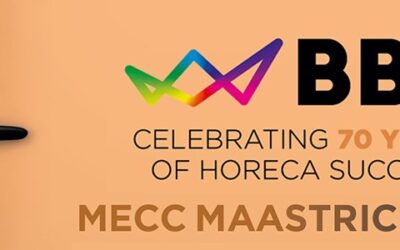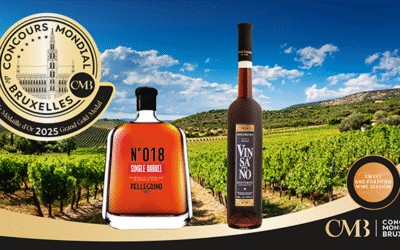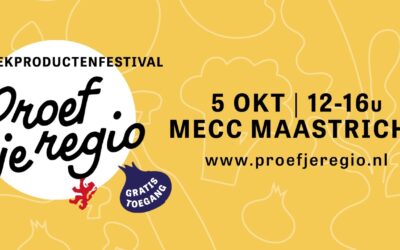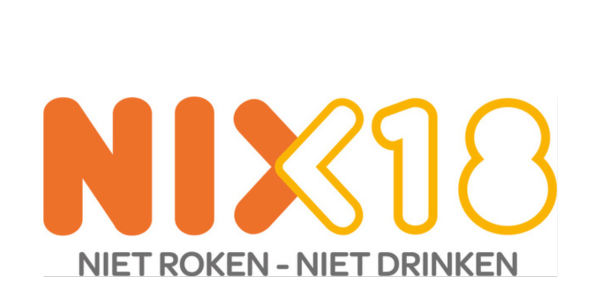
by Jürgen Deibel
When it comes to spirits trends this year, there is no way around agave. Consumers’ growing interest in new and exotic flavours is clearly driving market growth in the segment of agave distillates. Craft Tequila and Mezcal are therefore a special centre of attraction at ProWein from 10 to 12 March 2024 – the world’s biggest and most relevant trade fair for wines and spirits.
The fascinating world of agave spirits has gained increasing attention around the world over the past few years; above all Mezcal and Tequila are centre stage here. Gained from agave plants in Mexico, these spirits have a rich heritage and offer an impressive variety of flavours. Mexican cuisine and culture are becoming ever more popular, which also gives rise to the growing fascination with traditional Mexican spirits. Consumers are attracted by the rich history, the artisan production methods and the unique taste profile of the product.
In addition, the rising demand for premium spirits has provided the agave spirits industry with a boom. The premiumisation trend has offered regional players numerous possibilities for introducing new products thereby positively impacting market growth.
In 2022 the global Tequila market amounted to US$ 9.89 billion and is expected to grow to US$ 15.57 billion by 2029 – corresponding to an average annual growth rate of 5.89% in the forecasting period. (Source: Fortune Business Insights).
But what exactly are agave distillates? The probably most well-known and widespread agave spirit is Tequila, which is exclusively made of the “blue weaver agave”. However, there are also other agave species used for producing spirits such as Mezcal, Bacanora, Raicilla and Sotol, to name but a few. Each of these spirits has its own characteristic properties and manufacturing method.
Tequila – the most well-known distillate
Tequila is produced in the Jalisco region and four other, smaller regions of Mexico. The blue agaves are harvested, their leaves removed and the remaining bulb called “piña” is baked and then shredded to extract the juice. The resulting liquid is first fermented, then distilled and finally often aged in oak casks.
At ProWein Tequila brands can be found both in the Trend Show “same but different” (Hall 7) and in the ProSpirits brand world in Hall 5. These include famous labels such as Tequila Cofradía (Hall 5, E10) and Spirit of Mexico (Hall 5, A10), Tequila Ollitas and the aged Tequilas bearing the Gran Orendain brand (Hall 5, C10) as well as Tequilas del Señor from Guadalajara (Hall 5, B24) and the brands Tequila El Mayor with Cristalino Tequila, Cava de Oro, Topanito Tequila (Hall 5, B16) presented by Perola. They all testify to the diversity of agave spirits.
Mezcal – the “mother category”
Mezcal is produced from several agave varieties. Many Mezcals are still handcrafted the traditional way in small batches. The smoky flavour often associated with Mezcal is created by roasting the agave bulbs in earth pits.
Mezcal, often also referred to as the “mother category of agave spirits” or the “big brother” of Tequila is produced in various Mexican regions. The principal production area is located in the south surrounding the city Oaxaca de Juárez in the state of the same name. Unlike Tequila, Mezcal is produced from various agave varieties, predominantly the Espadín variety (Latin: Angustifolia) rather than the blue agave. However, Mezcal sets itself apart with its traditional production method. Here the focus is on the craftsmanship of the “Mezcaleros” and the diversity of agave varieties, as demonstrated by Mezcal San Cosme exhibiting a Mezcal Artesano (Hall 7, C34) and by Perola showing various Mezcals of the brands Villa Lobos and Del Maguey Single Village Mezcal (Hall 5, B16).
Flavour range of agave distillates – agave variety, region and ageing
The world of agave distillates boasts a fascinating diversity of aromas and flavours ranging from sweet and fruity to smoky and earthy. The final product is decisively influenced by the art of distilling and the choice of agave variety. Connoisseurs appreciate this diversity and the cultural nuances associated with each individual type of agave distillates.
Tequila, the most iconic agave spirit, is made exclusively from the blue agave and produced in five protected regions of Mexico. The market is subdivided by type into Blanco, Reposado, Anejo, to name but three. The Blanco types account for an important share of the Tequila market because of the often earthy, semi-sweet and characteristic agave flavour. Their mild taste and wide availability lead to wide consumption. The widespread use of Blanco types in a number of cocktails and the “Paloma” long drink, which is also very popular in Europe, contributes to retaining this large market share.
“Reposado” (rested) and Anejo (aged) types have also enjoyed rising popularity over the past few years since consumers have learnt more and more about these spirits and are ready to discover new types. In contrast with Blanco, Reposado and Anejo are “matured” (Reposado: between two months and one year; Anejo for at least twelve months), which accounts for their various honey and vanilla flavours – paired with typical agave notes.
A brand enjoying global success and especially popular with young consumers, is the Sierra Tequila from Guadalajara (distributed by Borco-Marken Import Matthiesen GmbH & Co KG in Hamburg) with its Mixto and 100% agave varieties from Blanco to Anejo (Hall 5, E09). This brand will launch its new look at ProWein this year.
Tequila – on course for growth worldwide
In contrast to Mezcal, Tequila is predominantly still produced on an industrial scale but there is a growing trend towards high-quality and craft Tequilas. Here, the 100% agave Tequilas are currently experiencing the highest demand.
With a forecast market volume of € 10,050 million in 2024 the USA generates the highest Tequila sales. In Germany these sales are expected to total some € 326.90 million this year and the market volume is forecast to reach € 378.60 million by 2028 – corresponding to annual growth of 3.74% (CAGR 2024-2028). In terms of volumes the market will total 11.39 million litres by 2028, with 2.55% sales growth between 2025 and 2028.
Manufacturers are increasingly producing Mezcal in higher qualities. By accounts of Mexican regulatory body COMERCAM, the state of Oaxaca is the main producer of Mezcal: in 2020 more than 90% of the output hailed from this state. In addition, the growing international demand for this beverage has driven exports thereby creating great opportunities for the Mexican spirits market.
With a rising appreciation of craft production methods and traditional techniques, agave spirits are also gaining in importance in international cocktail culture. From classic Margaritas to the long drink “Paloma” not forgetting innovative mix drinks – agaves have conquered bar counters and given proof of their diversity.
Rising interest in additive-free agave distillation
One of the crucial drivers for the demand for this beverage in Europe is consumers’ rising predilection for handcrafted and high-quality spirits. The new buzzwords for agave distillation are: 100% agave, only natural ingredients and no use of synthetic aromas, no colorants, sweeteners or added sugar plus traditional production techniques often in micro-distilleries. Examples can be found at ProWein with Mayaciel Spirits GmbH (Hall 7, C59) and Singular Destilados Artesanos Premium (Hall 7, B59). Since consumers are increasingly aware of the beverages they consume, specialist buyers from retail, food service and the bar community have to increasingly focus on products with unique flavours and production methods. Here ProWein 2024 and its brand world ProSpirits offer an impressive selection for every professional.
Other spirits trends at ProWein 2024:
- Brandy – the grape renaissance
- Vodka – The Resurrection of Vodka – This Time with Character!
- Liqueurs – Getting Sweet(er)
- RTD – Ready to Drink









